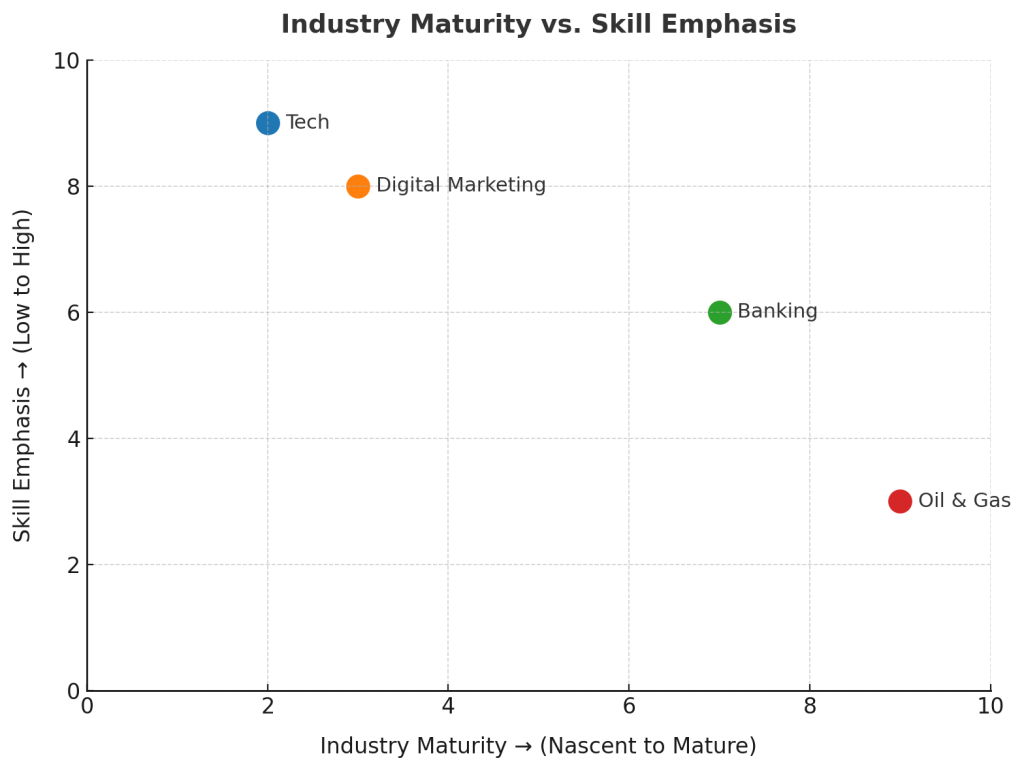Why Skills Are Winning Over Degrees in Nigerian Hiring (and What It Means for You)
For decades, academic degrees in Nigeria served as a reliable indicator of professional competence. However, this perception is shifting.

Photo by Ron Lach
Employers in Nigeria are quietly rewriting the rules of recruitment. Across roles where output can be demonstrated quickly—such as software, design, and analytics—verifiable skills now trump formal degrees.
Nigeria’s latest labour data and international evidence suggest that organisations adopting task-based assessments and internal upskilling will access larger, more diverse talent pools while reducing time-to-productivity.
Hence, individuals who build portfolios and micro-credentials will convert opportunities faster than those relying on certificates alone.
The Credential-First Playbook Is Breaking Down
For decades, academic degrees in Nigeria served as a reliable indicator of professional competence. However, this perception is shifting, particularly in fields where tangible outputs can be evaluated directly.
Employers sourcing software developers are increasingly examining code repositories and administering technical assessments. Marketing professionals evaluate candidates based on campaign metrics and outcomes; while data-centric roles are often vetted through concise, targeted exercises that test practical skills.
This isn’t an anti-degree movement so much as a pro-evidence shift—toward proof that a candidate can deliver value on day one.
According to LinkedIn’s Economic Graph, shifting to skills-based screening can significantly expand the pool of candidates for job openings. This approach, which prioritizes a person’s abilities rather than their past job titles, not only increases the number of qualified applicants but also helps broaden access to opportunities for underrepresented groups.
What’s Different About Nigeria’s Labour Market in 2024–2025
Three contextual forces are pushing firms toward skills-based hiring:
- Tight operating conditions are driving up the costs associated with slow onboarding processes. According to the World Bank’s Nigeria Development Update from October 2024, macroeconomic pressures are compelling firms to prioritise productivity and resilience. As a result, organisations increasingly favour candidates who can provide immediate contributions to the business, rather than those with prestigious qualifications or backgrounds.
- The International Labour Organisation (ILO) has noted that a significant number of workers in Nigeria are engaged in informal sectors. This high level of informality, along with issues such as underemployment and a lack of sufficient job creation, presents challenges in matching job seekers with available positions. Hence, demonstrating real skills and competencies has emerged as a more reliable measure of employability compared to traditional formal educational credentials.
- The Labour Force Survey for Nigeria’s second quarter of 2024 indicates a notable increase in the employment-to-population ratio, which rose to 76.1% from 73.2% in the first quarter of 2024. While this growth appears encouraging, it’s crucial to examine the details further, as such figures often mask significant challenges related to job quality and the alignment of skills with market demands. Employers are facing difficulties in identifying candidates who possess the necessary readiness for formal employment. In response to this persistent issue, many organisations are adopting skills-first screening approaches as a viable strategy to close the skills gap.
Two Dimensions That Predict When Skills Outperform Degrees
Dimension 1 — Industry Maturity.
In rapidly developing fields such as software development, product design, and digital marketing, knowledge cycles tend to be brief, and the tools and technologies employed can change swiftly. As a result, employers in these sectors place a high priority on candidates’ ability to perform tasks effectively and demonstrate their capacity for rapid learning.
In contrast, in more established and regulated industries such as oil and gas, as well as certain finance roles, the emphasis remains on established knowledge and compliance, making degree qualifications particularly relevant. This trend reflects broader global patterns observed in the supply and demand for skills, as well as ongoing modernisation efforts in technical and vocational education and training (TVET).
Dimension 2 — Output Measurability.
In industries where work output can be assessed in a relatively brief period, such as code reviews, dashboard analytics, and the creation of creative assets, skills-based indicators tend to be the primary criteria for evaluation. On the other hand, in fields that demand long-term performance and carry higher levels of risk, such as medicine and law, academic degrees remain crucial indicators of credibility and trustworthiness.

How Employers Can Harness This Value
1. Rewrite role definitions to remove unnecessary degree barriers.
To enhance the talent acquisition process, consider updating job requirements by replacing “B.Sc. required” with “Portfolio or work sample required” for positions where the output can be evaluated. This change should be implemented initially for roles in engineering, design, data, growth, and operations analysis. According to LinkedIn’s research, adopting this approach can significantly expand talent pools while ensuring that standards are upheld through practical assessments.
2. Adopt lightweight, job-relevant assessments.
Implementing 60 to 120-minute tasks that align with core competencies—such as API integration with unit tests, creating a GA4 dashboard from disorganised data, or developing a one-page growth plan with relevant metrics—can significantly enhance the recruitment process. This approach helps in minimising false positives related to CV evaluations and reduces false negatives concerning candidates with non-traditional backgrounds, as recommended by global TVET guidance.
3. Invest in structured, on-the-job upskilling.
The analysis conducted by the World Bank on Nigeria outlines the importance of enhancing firm-level productivity through capability building, especially in the context of macroeconomic constraints. To effectively implement this, organisations can establish 6 to 8-week learning sprints that focus on specific deliverables.
It is necessary to evaluate progress not by the number of training hours completed, but by measuring time-to-independence and defect rates. This approach aims to facilitate a more outcome-oriented training environment that aligns with real-world business needs.
What Educators and Policymakers Can Change
1. Co-design modules with employers and assess what matters.
As the digital economy reshapes the world of work, our educational institutions can’t be left behind. To stay relevant, Technical and Vocational Education and Training (TVET) and university programs must be actively updated to reflect the current technological landscape. This can help minimise the gap between classroom learning and real-world application.
One effective strategy is to engage industry partners in the development of term projects, allowing students to work on practical, hands-on experiences. Assessment can then focus on the creation of working prototypes, instrumented dashboards, and professional-style presentations that simulate actual industry conditions.
2. Standardise micro-credentials that verify applied competence.
Research from the International Labour Organisation (ILO) and global practices indicates that effective job matching occurs when skills are communicated and aligned with real-world tasks. To enhance this alignment, it is important to use portable badges that represent specific skills related to common responsibilities, such as performing SQL joins on complex datasets, implementing responsive front-end designs, and managing performance marketing cohorts. This approach helps to bridge the gap between skills and actual job requirements, improving the likelihood of successful employment outcomes.
What Individuals Can Do to Convert Opportunity
1. Build a public portfolio and ship small, real projects.
Maintaining well-structured repositories with organised code and comprehensive tests is essential for developers. Analysts should focus on publishing notebooks and dashboards that showcase their analytical rigour and insights. Marketers are encouraged to provide detailed campaign briefs, creative assets, and evidence of performance. For recruiters, these artefacts are vital indicators of a candidate’s competence and skill set.
2. Stack short, targeted credentials onto live work.
Improve your qualifications by obtaining micro-credentials that focus on critical tasks relevant to your role. Consider areas such as cloud fundamentals, business intelligence (BI) tools, and growth analytics. These skills-based certifications are valuable in screening processes, as they are closely associated with positive job performance and successful outcomes in your field.
Bottom Line
Degrees still hold significant importance in regulated and high-stakes environments. However, they are increasingly inadequate as the sole qualification for many growth-oriented positions.
Article Sources
The Workplace Magazine requires writers to use primary sources to support their work. These include white papers, government data, original reporting, and interviews with industry experts. We also reference original research from other reputable publishers where appropriate. You can learn more about the standards we follow in producing accurate, unbiased content in our editorial policy.
National Bureau of Statistics (NBS), Nigeria Labour Force Survey (Q1 & Q2 2024).
World Bank — Nigeria Development Update (Oct 2024); Skills/TVET press release.
International Labour Organisation (ILO) — Nigeria policy brief (2024).
LinkedIn Economic Graph — Skills-First research (2023, 2025) and overview.
Jobberman Nigeria (Research page) & ITU digital-skills assessment.



